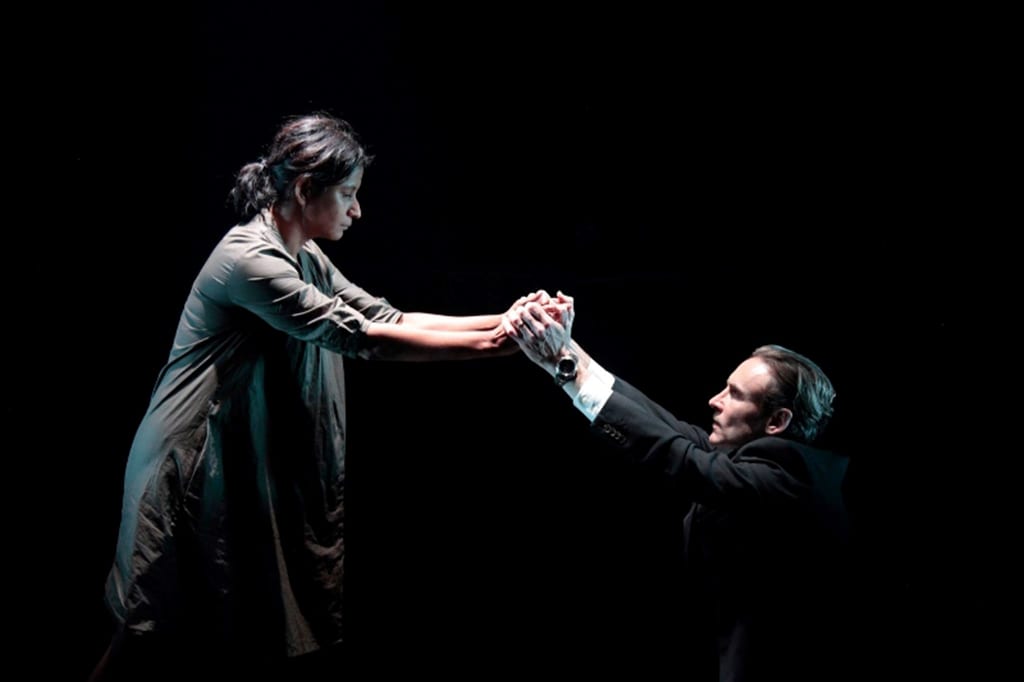Dark, in the case of this play, is the operative word. The set is a single spartan strip of obsidian black matting in the middle of the theatre; the two actors are clad in blacks and greys, and neither smiles once, except when manic grieving overspills into crazed laughter; the subject matter is a black as pitch.
The plot is closely based on actual, and quite recent, events. Nikolai Koslov, a young architect from Ossetia, loses his entire family in a plane crash. Unable to cope with the grief and the perceived lack of justice, Nikolai kills the air traffic controller whose error caused the crash, and subsequently spends four years in a Swiss jail for the crime. Upon his release, he is welcomed back to Ossetia as a national hero and even given a position in government – but he is unable to escape the legacy of what he has done.
Clearly, the philosophical backbone of the piece is the issue of retribution. But are we exploring it, or are we just looking at it? We all know that an eye for an eye makes us all blind, and the play doesn’t seem to have much more to add. The majority of the running time deals with Koslov’s grief in the aftermath of the crash, while events after his release from prison – his return home and his elevation to national cause celebre, which to me are the most intriguing parts of the story – are rushed through in the last few minutes. The interesting, and narratively critical, fact that blood feuds are still an active part of Ossetian culture is tossed in in a line of expository dialogue and never further examined.
Both actors put in excellent performances, but there is an uncomfortable void at the heart of the play – and perhaps that’s the point. The precipitating event is an accident, the lead character is a hollow shell, acting without agency or motive, and nothing is ultimately resolved. It’s a study in meaninglessness and arbitrariness, and our inability to cope with it.

